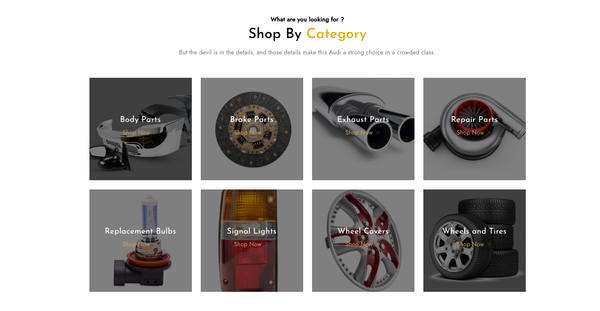Shopify’s Closed Doors: Where Are the Free Themes? 7 Open-Source Alternatives for Building Your Online Store
Table of Content
Shopify is often praised for its simplicity and convenience in setting up an online store. But if you’re on the hunt for free and open-source themes for Shopify, you might be disappointed by the slim pickings. This lack of options isn’t accidental — it’s a direct consequence of how Shopify operates.
Why Are There So Few Free and Open-Source Shopify Themes?
Shopify thrives on its proprietary ecosystem, where revenue comes from subscriptions, paid themes, and app extensions. Their entire business model hinges on selling tools to store owners, leaving little room for open-source contributions.

Developers who create Shopify themes often do so to sell them in the official Shopify Theme Store, where they can profit from each sale.
Additionally, Shopify uses Liquid, a proprietary templating language. While it offers some flexibility, it doesn’t encourage the kind of community-driven, open-source development seen in other platforms. This closed approach means fewer developers are motivated to create and share free, open-source themes.

That's why many Shopify users consider migrating to a self-hosted platform, where they have better control.
Self-hosted Alternatives to Shopify
If Shopify’s closed ecosystem feels too restrictive or costly, you’re in luck. There are several excellent open-source e-commerce platforms that give you freedom, flexibility, and control.
Here are some of the best:
1. WooCommerce
- Platform: WordPress
- Highlights: Fully customizable, vast plugin ecosystem, large community support.
- Why It’s Great: WooCommerce transforms any WordPress site into a fully functional online store. It’s free, open-source, and integrates seamlessly with countless themes and plugins. You have total control over your store’s design and functionality.
2. SureCart
- Platform: Self-WordPress
- Highlights: Scalable, feature-rich, and highly customizable.
- Why It’s Great: You can consider it the new alternative to WooCommerce

3. OpenCart
- Platform: Self-hosted
- Highlights: Lightweight, easy to use, with a marketplace for extensions.
- Why It’s Great: Perfect for small to medium-sized stores, OpenCart has a straightforward interface and a strong plugin ecosystem. It’s simple to get started and easy to maintain.
4. Bagisto
- Platform: Laravel-based
- Highlights: Modern architecture, multi-vendor support, headless e-commerce.
- Why It’s Great: Bagisto is a developer-friendly option built on Laravel. It supports modern features like headless commerce and multi-vendor marketplaces.
6. Sylius
- Platform: Symfony-based
- Highlights: Highly customizable, perfect for bespoke solutions.
- Why It’s Great: Sylius is designed for businesses that need a tailored e-commerce experience. Its clean, developer-centric approach avoids the bloat of other platforms.
6. Medusa
- Platform: Node.js-based
- Highlights: Headless, modular architecture, and developer-friendly.
- Why It’s Great: Medusa offers a powerful open-source alternative to Shopify, designed for developers who want complete control over their e-commerce setup. Its composable architecture makes it easy to integrate third-party services, add custom features, and build scalable solutions. With Docker or Heroku, you can deploy a fully functional Medusa instance in minutes, and its growing library of plugins ensures flexibility without compromising on performance.
7. EverShop
- Platform: Node.js-based
- Highlights: Headless, customizable, and performance-oriented.
- Why It’s Great: EverShop is a modern open-source e-commerce platform built for developers who want flexibility and speed. Its headless architecture allows for seamless integration with front-end frameworks like React. With a focus on performance and modularity, EverShop makes it easy to customize, extend, and deploy feature-rich online stores. The intuitive design and clean codebase ensure an excellent developer experience, making it an ideal solution for scalable and modern e-commerce applications.
However, If you are looking to build your own eCommerce system based on a headless solution, you can check our lists in the following:





















